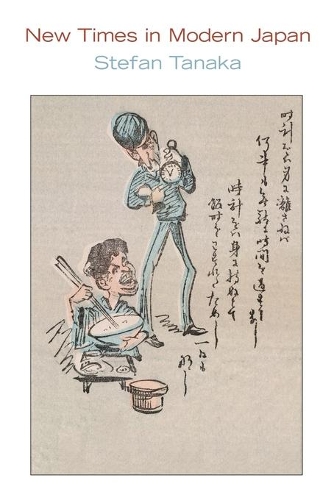
New Times in Modern Japan
(Paperback)
Publishing Details
New Times in Modern Japan
By (Author) Stefan Tanaka
Princeton University Press
Princeton University Press
3rd October 2006
United States
Classifications
Professional and Scholarly
Non Fiction
952.031
Physical Properties
Paperback
240
Width 152mm, Height 235mm
369g
Description
New Times in Modern Japan concerns the transformation of time--the reckoning of time--during Japan's Meiji period, specifically from around 1870 to 1900. Time literally changed as the archipelago synchronized with the Western imperialists' reckoning of time. The solar calendar and clock became standard timekeeping devices, and society adapted to the abstractions inherent in modern notions of time. This set off a cascade of changes that completely reconfigured how humans interacted with each other and with their environment--a process whose analysis carries implications for other non-Western societies as well. By examining topics ranging from geology, ghosts, childhood, art history, and architecture to nature as a whole, Stefan Tanaka explores how changing conceptions of time destabilized inherited knowledge and practices and ultimately facilitated the reconfiguration of the archipelago's heterogeneous communities into the liberal-capitalist nation-state, Japan.However, this revolutionary transformation--where, in the words of Lewis Mumford, "the clock, not the steam engine," is the key mechanism of the industrial age--has received little more than a footnote in the history of Japan. This book's innovative focus on time not only shifts attention away from debates about the failure (or success) of "modernization" toward how individuals interact with the overlay of abstract concepts upon their lives; it also illuminates the roles of history as discourse and as practice in this reconfiguration of society. In doing so, it will influence discussions about modernity well beyond the borders of Japan.
Reviews
"Scholars with an interest in the onset and consequences of modernity in Japan will find much in this important new work by Stefan Tanaka to stimulate and challenge them."--Daniel Botsman, Journal of Asian Studies
Author Bio
Stefan Tanaka is Professor of History at the University of California, San Diego. He is the author of "Japan's Orient: Rendering Pasts into History".
